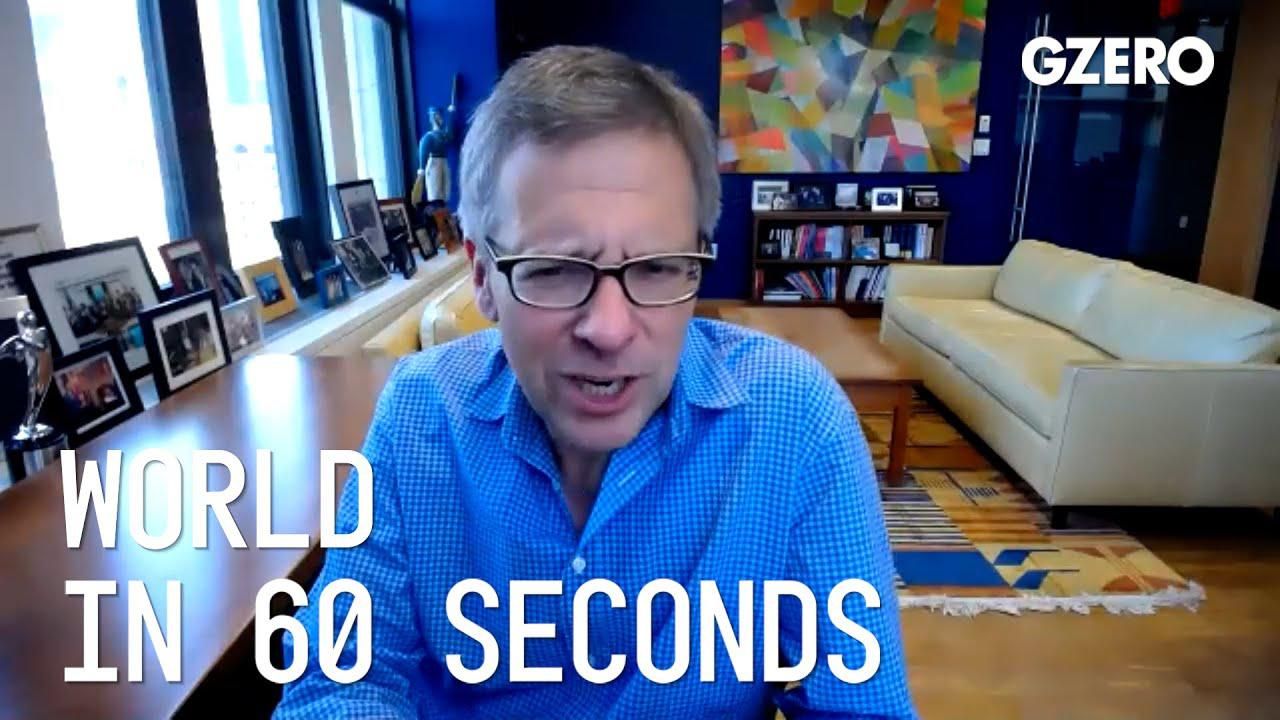Ian Bremmer shares his perspective on global politics on World In 60 Seconds (aka Around the World in 180 Seconds) :
Biden says he expects significant de-escalation between Israel and Hamas. Will the conflict end soon?
He wouldn't say that if he hadn't already been told that by Bibi Netanyahu, the Israeli prime minister, as well as the fact that Israeli Defense Forces have already been saying that they've engaged in significant deterioration of Hamas's military and leadership capabilities. That means that within days you likely get a ceasefire. It's going to be back and forth. The Israelis saying Hamas have to go first. And even when you get a ceasefire agree, then you get more violence, and you get an outbreak. So it's a bit of a rolling back and forth as opposed to suddenly there's just no more military engagement. But I would be really surprised if in another week we see this level of military conflict and of deaths on the ground, primarily in Gaza. In fact, I'd say really by the end of the weekend, I would think that this is going to calm down significantly. Biden wouldn't be saying that otherwise.
Does Putin have a role in the Israel-Palestine conflict?
Not a big one. I mean, certainly Putin has come out and been more assertive in opposing Israel, supporting the Palestinian cause, but there is also a lot of informal political engagement between the Kremlin and a lot of Jews that had emigrated from the former Soviet republics into Israel, particularly on the Israeli right. And that's a reasonably strong connection. Netanyahu has a pretty good line into the Kremlin and Putin himself, and that's not gone away. So I would say it's pragmatic, I wouldn't say it's a very significant relationship.
Has India lost control of the pandemic?
Completely different question. I'm not sure they ever had control of the pandemic. They just didn't have as many cases. And now they have no idea how many cases they have. You've seen 4,500 deaths in the last 24 hours, that they know about, in reality it's probably two to five times greater than that. It's the largest number of known deaths in any country since the pandemic began over a year ago. And of course, with the exception of China, India's got the largest population in the world by a large margin. So the per capita deaths, aren't so large compared to some other countries around the world, but the impact for variants and spread is massive. And that is, of course, a danger. There are going to be a lot more variants by the end of the year, and India just has no capacity to really get a handle on that. The testing levels in India are de minimis, and it's not like they have control of all their borders. So all of that is pretty problematic, though not for the countries that are engaging in rollout of vaccines across the board like we are in the US, and increasingly in Europe.
China successfully landed a Rover on Mars. Another space race for the United States?
Well, I mean, China's investing a lot, but to the extent there's a space race, I'm not sure it's with NASA, as opposed to with Elon Musk and SpaceX. I mean, increasingly the private sector in the United States, they're the ones that are doing the most in terms of the future of space. Is that aligned with American national security? Not necessarily. We'll see where that goes. Certainly SpaceX, I mean, their biggest contracts are with the US government because they've got the ability to get payload up. And so the US is basically renting it from SpaceX. But increasingly Elon Musk is dominating lower earth orbit. That's pretty interesting. He's one guy. What happens if he changes citizenship? What if he leaves? And what's the US government going to do about regulating that? It's going to be an interesting question, but for now, I think I'd be more concerned about things like technology in the US as well as things like Taiwan, South China Sea, the Uighurs, a little bit less so about space.
- As India gasps for air, a government “still in denial” - GZERO Media ›
- The climate cost of Big Tech's space obsession - GZERO Media ›
- Turkey and Russia's Middle East power grabs - GZERO Media ›
- Israel and Hamas on the brink of war - GZERO Media ›
- Jeff Bezos' Blue Origin space flight & the new space race - GZERO Media ›
- Jeff Bezos' Blue Origin space flight & the new space race - GZERO Media ›
- Can the US stay ahead of Russia & China in the space race? - GZERO Media ›
- Ian Explains: Who's winning the US-China space race? - GZERO Media ›
More For You
65,000: The tons of fresh-cut flowers that Colombia exported between Jan. 15 and Feb. 9 this year, ahead of the Valentine’s Day rush.
Most Popular
Think you know what's going on around the world? Here's your chance to prove it.
The Russian government has begun blocking the popular messaging apps WhatsApp and Telegram in a sweeping crackdown aimed at forcing Russians to use a state-backed alternative called MAX, which critics say would enable censorship and surveillance.
The US government will reportedly fund MAGA-aligned parties and think tanks in Europe. But with US President Donald Trump’s favorability in Europe so low, do they even want the money?
